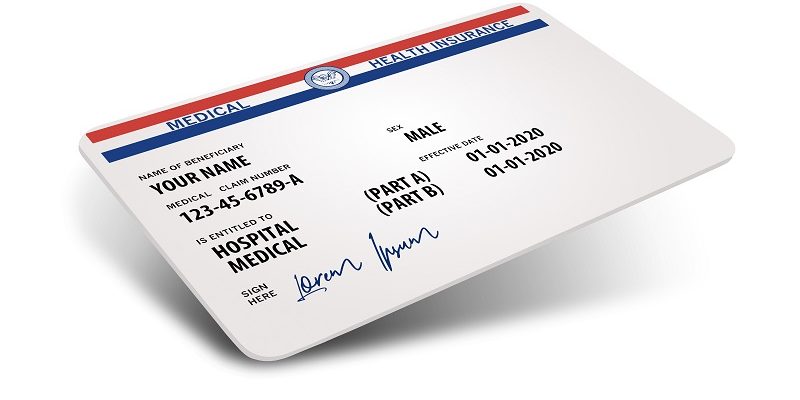Medicare Eligibility
Who is eligible and when can you get Medicare? Medicare eligibility begins for most people at age 65. Individuals who have been entitled to Social Security disability for at least 24 months also qualify.
There are other situations someone can qualify for Medicare under the age of 65:
1. If you are permanently disabled and you have been receiving Social Security disability income benefits for 24 months.
2. End-Stage Renal Disease, which is kidney failure that requires you to get dialysis or you are waiting for a kidney transplant.
3. If you have Amyotrophic Lateral Sclerosis (ALS), also called Lou Gehrig’s disease

Eligibility for Medicare Part A
You are eligible for Medicare Part A at age 65 if you or your spouse has legally worked for at least 10 years or 40 quarters in the U.S.
While working during those years, you paid taxes toward your Part A hospital benefits. This is why most Americans pay no Part A premiums when they become eligible for Medicare. Part A mainly covers your hospital stays.
If you have not worked the required 10 years to qualify for Medicare Part A at no cost, you can purchase Part A. Contact Social Security to find out the cost.
If you must purchase Part A, the coverage will cost over $400/monthly. In some cases, if you have worked between 30 and less than 40 quarters, that monthly payment may be prorated. Contact the Social Security office to see if you qualify.
If you are already enrolled in Social Security income benefits at the time you turn 65, You may be automatically enrolled in Part A (and Part B). Your Medicare card will arrive in your mailbox about 4 – 6 weeks before you turn 65.
Eligibility for Medicare Part B
You are eligible for Medicare Part B at age 65 as well. However, you must pay a monthly premium for Part B. This provides for your outpatient benefits such as doctor visits, lab work, surgery fees, and more. Check out our Part B page for more on what Part B covers.
Some people turning 65 still have health insurance through an employer. They can delay their enrollment into Part B in favor of their group health insurance without fearing a late penalty.
If you delay enrollment into Part B, consult with an insurance agent who specializes in Medicare. He or she can explain the special election periods which you must use later on so that you won’t be subject to a late enrollment penalty.
Eligibility for Medicare Part C
Medicare Part C is another name for the Medicare Advantage program. You can enroll in Part C if you wish to get your benefits through a private insurance company instead of Original Medicare. Usually these plans have smaller networks than Medicare, but some of them include built-in Part D coverage.
To be eligible for Part C, you must first be enrolled in both Medicare Parts A and B and you must also live in the plan’s service area. Living in the plans “service area” is an important thing to keep in mind when enrolling in Medicare Part C.
You must have both A and B to even be eligible to enroll in either a Medicare Advantage plan or Medigap plan. You must continue to be enrolled in Parts A and B during the entire time that you are enrolled in a Medicare Advantage plan. Many people think that if they enroll in a Medicare Advantage plan, they can drop their Part B and not pay the Part B premiums. IMPORTANT. Keeping paying your Part B premium!
Learn more about Part C Advantage plans.
Eligibility for Medicare Part D
You are eligible for Medicare Part D as long as you are actively enrolled in either Part A and/or B and you must also live in the Part D plans service area. Although we strongly recommend that you enroll in Part D coverage, it is totally voluntary. Part D provides insurance against future catastrophic medication costs. Be aware that if you do not enroll in Part D and you have no other creditable coverage, you may incur late penalties when you enroll later. Worst case, take the lower cost Part D plan to prevent incurring penalties and the cost of an unexpected diagnosis that can drive you into medical bankruptcy.








